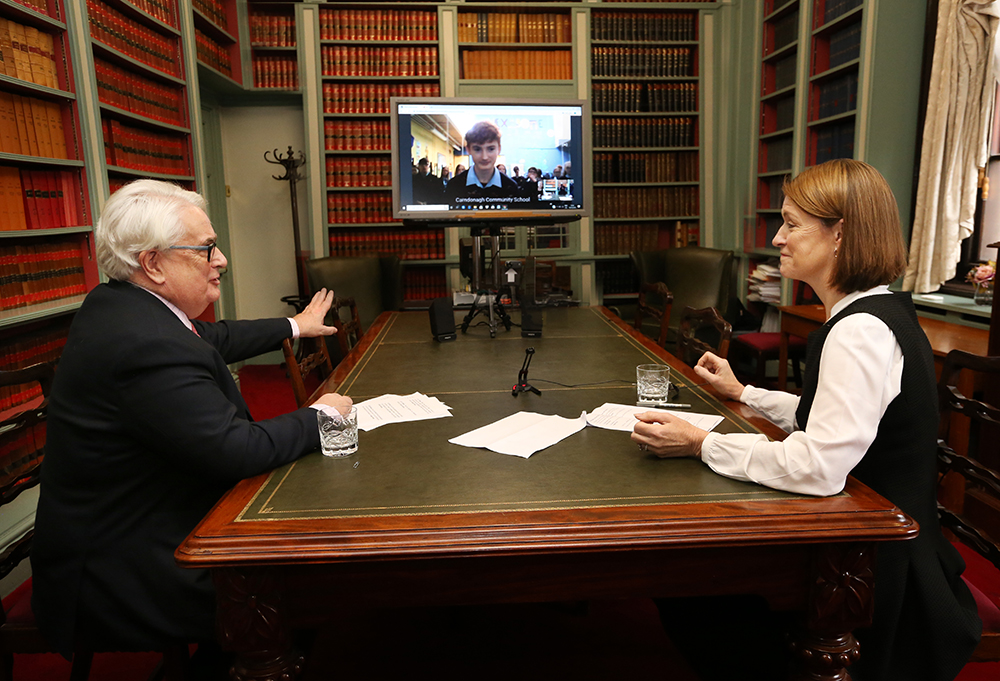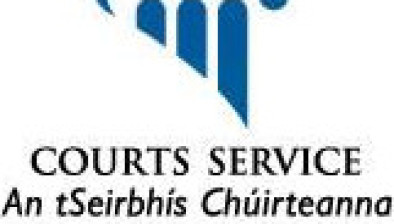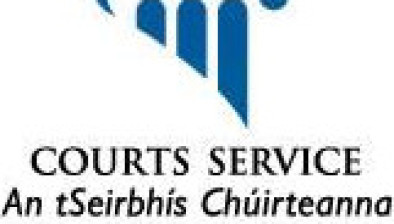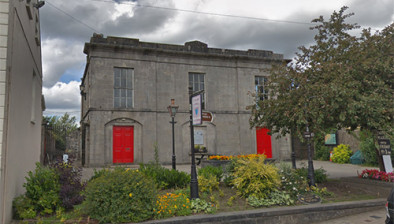School pupils take part in video conference with Supreme Court judges

Pupils from Carndonagh Community School in Co Donegal have become the first to take part in a video conference with Supreme Court judges under a new initiative aimed at helping young people understand the work of the court.
The initiative, called Comhrá (Conversation), aims to foster a greater awareness and understanding among second-level schools of the role of the Supreme Court and the work of the judges in upholding the Constitution and the law.
The Chief Justice of Ireland, Mr Justice Frank Clarke, and Ms Justice Mary Irvine took part in the inaugural 30-minute call with Carndonagh pupils from the comfort of the Four Courts on Friday.
Mr Justice Clarke said: “This interactive engagement with second-level students will, it is hoped, demonstrate how technology can be used to encourage young people to better understand the work of the Supreme Court.
“As a Supreme Court for all of Ireland it is important that all citizens – young and old – are able to visit the Supreme Court, even if remotely, and learn more about the work of the Court to gain a greater understanding of how the Courts of Ireland uphold the Constitution.
“This pilot initiative has the full support of the Supreme Court and it is hoped that, if successful, future calls will take place with many students across the country, providing them with an opportunity to learn more about the Supreme Court and role of Judges under the Constitution of Ireland.”
The National Association of Principals and Deputy Principals (NAPD) is collaborating with the Courts Service on the pilot programme, which will next come to three schools in Co Mayo, Co Dublin and Co Kildare.
NAPD director Clive Byrne said: “The Supreme Court is the highest court in the land and represents a unique organ within the Irish state. The Comhrá pilot will allow four secondary schools from across the country the opportunity to engage directly with members of the Supreme Court and to learn more about its functions and responsibilities, and the wide-ranging careers of its eight members.
“Education is also about learning outside the classroom. This programme is a perfect example of our efforts to broaden our students’ horizons and expose them to learning experiences they would not typically have during their normal school day. It represents a fascinating opportunity for second-level students who are considering pursuing a career in law. For others, it offers a window into our legal and justice systems.
“We look forward to further collaboration with the Courts Service in the future.”








